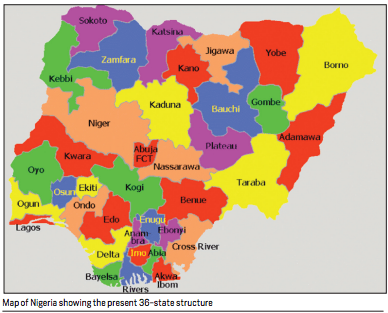The Patriots’ Summit, heralded as a noble endeavour to craft a “people’s constitution” through the convergence of over 700 Nigerians, is being presented as a transformative moment in the nation’s constitutional journey. It is cloaked in the rhetoric of national rebirth, promising a document authored by Nigerians for Nigerians.
Yet, beneath this grand narrative lies what may well prove to be an extravagant performance – a costly spectacle more theatrical than transformational. While the intention may appear commendable, the structure and timing of this gathering raise serious concerns. It risks serving as a political diversion rather than a decisive step toward genuine constitutional reform.
The inclusion of two former presidents, Olusegun Obasanjo and Goodluck Jonathan, is framed as lending weight and historical perspective to the process. However, both leaders, during their respective tenures, possessed the authority and public goodwill to introduce far-reaching constitutional reforms.
That such opportunities were not seized during their time in office raises sober questions about the efficacy of symbolic participation now. During his time as military Head of State (1976–1979), General Obasanjo presided over the drafting of the 1979 Constitution, Nigeria’s first presidential constitution.
This process, while ultimately issued under military authority, was shaped by a 49-member Constitution Drafting Committee comprised of distinguished civilians and legal minds, chaired by Chief Frederick Rotimi Williams (SAN). It was subsequently reviewed by a Constituent Assembly under Justice Udo Udoma, also made up of eminent Nigerians.
While the product was not born of a plebiscite, it represented a thoughtful effort at laying a new constitutional foundation. Dr Jonathan, during his tenure (2010– 2015), convened the 2014 National Conference, which produced a voluminous report, recommending a wide range of structural reforms. Though the process was inclusive and consultative, the report was not transmitted to the National Assembly nor was it implemented before the administration ended. Observers have attributed this to complex political considerations and resistance from multiple quarters. Nonetheless, the absence of follow-through leaves the reform momentum unfulfilled. The scale of the Patriots’ Summit – 700 delegates over three days – is itself problematic.
While inclusivity is desirable, such a large assembly may ultimately dilute effectiveness. Nigeria has seen such endeavours before. The 2014 National Conference, with 492 delegates, produced over 600 recommendations, yet none were adopted. Without clear institutional mechanisms for uptake, such forums risk becoming ceremonial rather than catalytic. Moreover, the summit does not appear to be directly engaging the core constitutional actors; the National Assembly, the 36 State Houses of Assembly, and the governors.
Under Section 9 of the 1999 Constitution, constitutional amendments require a two-thirds majority at both federal and state legislative levels. Without their active involvement, any recommendations, however well-articulated, may lack the legitimacy or procedural pathway required for enactment. A more focused and pragmatic model should be considered.
The Patriots’ Summit, while noble in intention, risks becoming another symbolic exercise unless rooted in the realities of Nigerian governance
A collegium of 100 care fully selected and reputable Nigerians, drawn from civil society, academia, the legal profession, traditional institutions, and the private sector, could be constituted to engage directly with the National Assembly, state Speakers and governors. These officeholders are the constitutional gatekeepers whose collaboration is vital for any serious reform.
Such a compact forum would promote high-level deliberation and ensure that outcomes are aligned with political and institutional realities. South Africa’s 1996 Constitution emerged from elite negotiations, not mass summits. Belgium’s prolonged government formation crisis in 2011, lasting 541 days, demonstrates the risk of stagnation when key actors are not on board. Constitutional reform, in any setting, demands elite consensus and institutional commitment.
The oft-repeated criticism that the 1999 Constitution is illegitimate because it emerged from a military regime, is intellectually unconvincing. The document builds upon the 1979 Constitution, which itself was drafted by eminent civilian jurists and reviewed by a broad-based Constituent Assembly. Legitimacy is derived not only from the moment of inception but from continued public acceptance and institutional application. For perspective, the United States Constitution of 1787 was drafted by 55 delegates, but only 39 signed the final document. Yet it has endured for over two centuries without a referendum. France’s 1958 Constitution, adopted under Charles de Gaulle in a time of national crisis, was similarly elite-driven but has served as the bedrock of the Fifth Republic.
Nigeria’s 1999 Constitution has sustained several democratic transitions and can be improved through targeted amendments rather than wholesale rejection. The debate over system structure, whether presidential or parliamentary, should be grounded in the realities of Nigeria’s political culture. Parliamentary systems require cohesive political parties, internal discipline, and a mature political ethos.
These qualities are not yet sufficiently entrenched in Nigeria’s democratic environment, where floor-crossing, party factionalism, and weak ideology are commonplace. Historical experience from the First Republic, and international examples such as Italy, suggest that parliamentary instability can hinder governance more than it helps. Instead of abandoning the presidential system, Nigeria might benefit from reforming it.
One compelling option is to introduce proportional representation in cabinet appointments—both at federal and state levels—based on legislative seats or popular vote shares. This approach, modelled on practices in Germany and other multi-party democracies, promotes inclusion, dampens postelection bitterness, and ensures that multiple voices are represented in executive decisionmaking. A ruling party with 60 per cent of seats could nominate 60 per cent of cabinet ministers, while opposition parties fill the remainder according to their legislative strength.
This fosters alignment between legislature and executive, reduces the adversarial nature of governance, and builds national consensus. The Patriots’ Summit, while noble in intention, risks becoming another symbolic exercise unless rooted in the realities of Nigerian governance. A smaller, more focused, and more institutionally engaged mechanism would serve the nation far better. Reform requires not fanfare but focus. It demands engagement not with applauseseeking delegates, but with those constitutionally empowered to enact the people’s will. Nigeria must look beyond pageantry and towards substance if it is to craft a truly enduring constitutional order.















